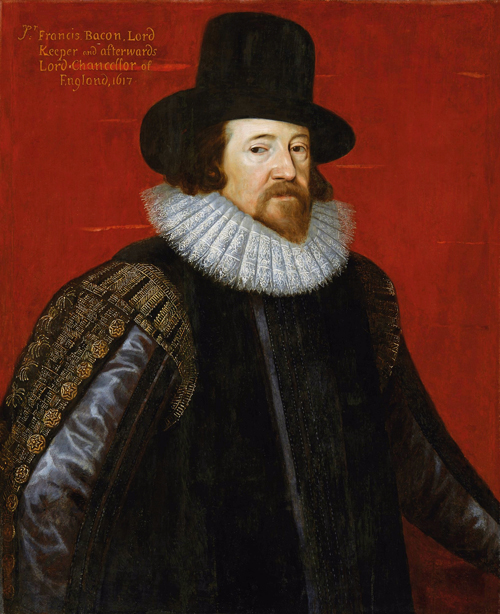
Your complimentary articles
You’ve read one of your four complimentary articles for this month.
You can read four articles free per month. To have complete access to the thousands of philosophy articles on this site, please
Philosophical Haiku
Francis Bacon (1561-1626)
by Terence Green
We needs must have help
Nature’s secrets to discern.
Observe and take note.

Francis Bacon by Paul Van Stomer 1617
A long with René Descartes (1596-1650), Francis Bacon is considered to be the father of modern science. And like Descartes, he would meet a chilly end – at least, so the story goes.
Born into an aristocratic family, Bacon was a man of considerable ambition. He rose to the giddy heights of Lord Chancellor in the court of James I, but just a few weeks later found himself tumbling at great speed from those heights after being impeached for accepting bribes, thus ending his glittering political career. But Bacon had never had all his irons in just one fire. Even while he was negotiating the tortuous path that leads to advancement in court circles, he had been working on advancement in another area: knowledge of the world.
Since the Greeks, natural knowledge had developed little, in part because the Church guided inquiry, but also because we never solved the problem of our hopeless senses, which time and time again mislead and betray us. What was needed was a new method: and in works such as The Advancement of Learning (1605) and Novum Organum (1620), Bacon laid out for the first time the path to true natural knowledge, via science. Rather than wild speculation fuelled by fevered imaginations – the favoured approach up to that point – Bacon brilliantly suggested that we should actually observe our world, do experiments, combine our talents and abilities, and use whatever tools we could think of. Hurrah! You can imagine the excitement.
Demonstrating his commitment to his new method, it is said that on a cold, snowy night, Bacon went outside to stuff a chicken with ice to see if refrigeration would preserve the chook. We don’t know what became of the chicken, since Bacon caught the flu and died a few days later.
© Terence Green 2024
Terence Green is a writer, historian, and lecturer who lives in Eastbourne, New Zealand.









